Gold Detecting Tips and Tricks
Gold Detecting is a popular hobby that people of all ages seem to enjoy because the activity gets them off their places and provides an opportunity to spend free time outdoors. Not only do you get to stay active and enjoy nature, but you can also find buried treasure along the way!
If you don’t quite have beginner’s luck and you’re worried you won’t find anything during your first take at prospecting, you shouldn’t overthink it, and just let yourself have fun. Since there are endless places you can try prospecting, like the beach, the woods, and the river, you will never run out of locations and chances at coming across gold and other valuable items.
Before you embark on your journey of panning for Gold Detecting, it’s essential to remember some tips to prevent the chances of going home empty-handed.
If you find one coin… you’re probably going to find another.
If you find one coin in a location it is always a great idea to make sure to search the area around it because you will often find another coin or many other coins. some prospectors once found three mercury dimes within a foot and a half of each other.
Go to the beach.
The beach is one of the most common places for gold detecting, and it’s often easier to dig them up when they are surrounded by sand.
Always go gold detecting after the snow melts.
It’s extremely easy to lose something in the snow, so it stands to reason that people are probably losing coins, rings, and other jewelry in the snow. When snow melts it leaves everything in plain view on the ground, ready for you to find.
Use a smaller coil if you are in a trashy location.
A small coil will have a smaller search area which will be easier to control when you are searching in a particularly trash infested area.
Carry a belt pouch to hold your finds.
One of the best investments is to get s small pouch that I can carry all of the finds . I recommend getting one that you can slip your belt through so that it is always accessible but never gets in your way.
Don’t clean a coin until you are absolutely positive of what it is worth.
By now most people know this information, but just in case you didn’t get the message, never wash an old coin before what you know it’s worth. Washing a coin, especially an old one, can damage it if not done extremely carefully.
Use a Pin-pointer
A pin-pointer is a handheld gold detecting that allows you to focus in on an object while you are digging. The benefit of a handheld tool is that it is easier to use when you are digging. Moreover, a pinpointers small size also helps you in small spaces.
Look for high-traffic areas
Going to locations such as tourist beaches to increase your chance of finding something is smart. What’s even smarter is further narrowing down your search location to increase your chance of finding something. Walking paths, hangout spots.
Record all of your finds.
An old trick is recording all of your finds, and not just the object description but also the location, is how you keep everything straight. Knowing where you get the most hits and where you get the best finds is essential to staying profitable.
Rotate the places you go to gold detect.
This tip works best when used in conjunction with the previous. If you often detect in areas with steady foot traffic, then the best way to maximize your chances is to give each of your locations a chance to ‘re-generate’. Rotating when and where you detect is the smartest way to accomplish this task.
Consider using a Pulse Induction metal Detector.
Very low frequency or VLF metal detectors offer discrimination feature which are helpful on the beach don’t get me wrong, but if it a saltwater beach then the additional sediment can cause interference that messes with a VLF metal detector. Pulse Induction metal detectors are unaffected by hot rocks, and yes, even a saltwater beach.
Walk in a grid pattern.
We’ve already explained why using an overlapping scan technique is essential to proper metal detecting technique , but to be sure you are finding everything that you possible , we recommend walking in a grid pattern. Pretending that a grid exists on top of wherever you are metal detecting is a good way to keep track of where you have, and have not, already checked.
Go treasure hunting after it rains.
This tip comes with benefits that are two-fold. Firstly, it’s only logical that after it rains the soil will be wet and easier to dig up. Taking advantage of the weather when it comes is a good way to get ahead.
Make a checklist of all your gear.
This probably isn’t a problem for those who have been using the same setup with the same equipment for a long time, but if you’re still worrying about losing something or not bringing something on an outing then a checklist of all your gear is what you need to keep things straight. I suggest keeping a digital copy, so you always re-print a copy when you need one.
Carry a test coin.
On days when you’ve gone hours without getting a single hit you are going to start thinking that your metal detector is broken. If you don’t already carry some change in your pocket, I suggest starting to at least keep one coin on you at all times. This will help you keep your sanity, and also check to make sure everything is in working order.
Carry coils of different sizes.
Different areas require different coil sizes plain and simple. A large field is going to be much better suited with a large coil, and the same goes for a smaller trashy area and a small coil that is easier to maneuver. This trick isn’t much of a trick at all seeing as how this is essentially just a policy of having the right tool for the job.
Carry coils of different types.
Everything we said about coil sizes goes for coil types. There are a few different coil designs to choose from and all of them have their own purpose. Knowing how, and when, to use each one is one of the most effective ways to increase your chances of finding something good.
Always carry extra batteries.
Metal detectors come with a wide range of battery styles and types, all of which depend on the model and price range of your metal detector. However, whatever kind of battery your metal detector uses I highly suggest getting some extra batteries. While you’re at it, get some extra chargers and make sure to use them.



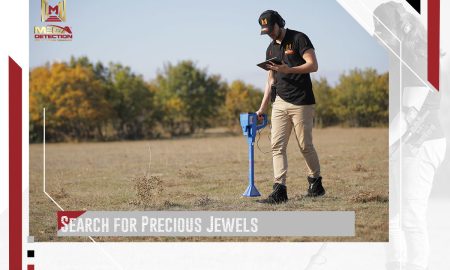
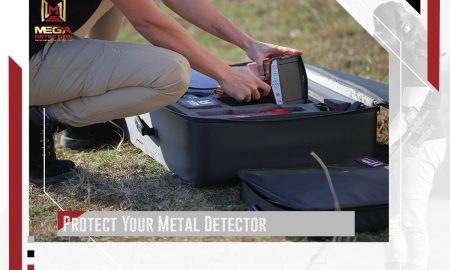
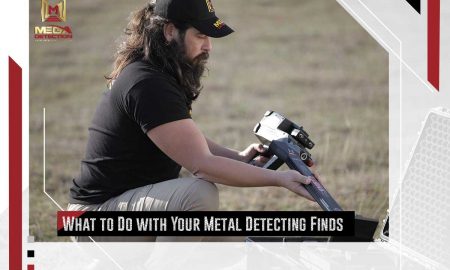



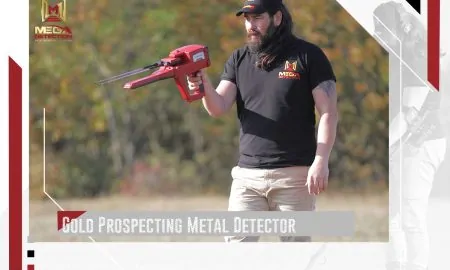
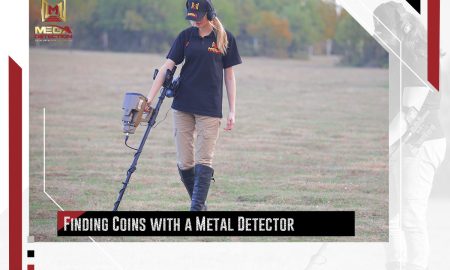
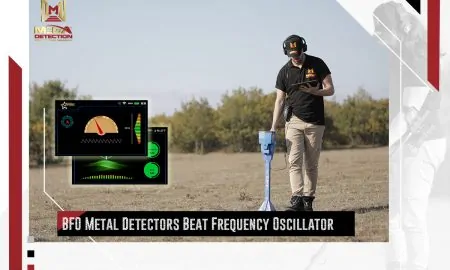
Leave a Reply